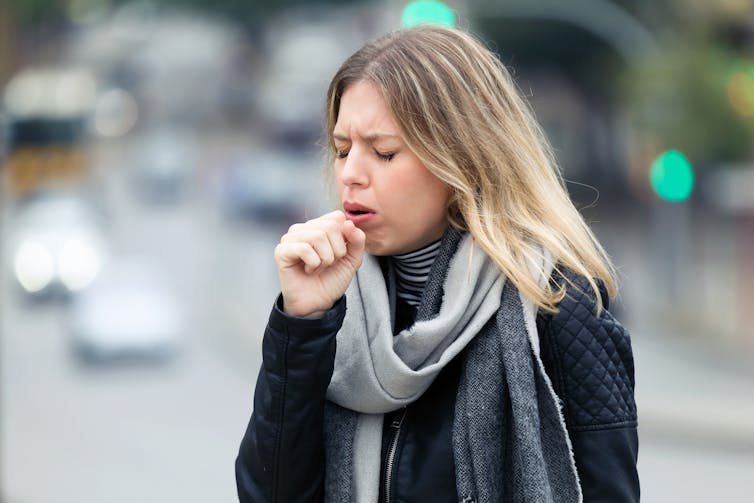About 82% of cases are mild - patients only experience a slight fever, fatigue and a cough.


Picture: iStock
Human coronaviruses have been around for a long time and are common throughout the world. There are many different coronaviruses identified in animals but only a small number of these can cause disease in humans.
Covid-19 is the disease caused by a new coronavirus. It was first reported in December 2019 in Wuhan in China. On 7 January 2020, Severe Acute Respiratory Syndrome Coronavirus 2 (SARS-CoV-2) was confirmed to have been caused by this Coronavirus Disease 2019 or Covid-19.
Since then, the virus has spread to more than 100 countries, including South Africa.
While the first cases probably involved exposure to an animal source, the virus is spreading from person to person.
The spread of the disease is thought to happen mainly via respiratory droplets produced when an infected person coughs or sneezes, similar to how influenza and other respiratory pathogens spread.
Thus far, the majority of cases have occurred in people with close physical contact to cases and healthcare workers caring for patients with Covid-19.
Most coronaviruses spread the same way other cold-causing viruses do – through infected people coughing and sneezing, by touching an infected person’s hands or face, or by touching things such as doorknobs that infected people have touched.


Picture: iStock
As at the morning of 18 March, South Africa was declared to have 116 confirmed cases of Covid-19. Most cases were brought in from overseas but there are now increasingly cases of local transmission.
If there is a suspected case, procedures are in place for case isolation as well as rapid specimen collection and transport so that a diagnosis can be quickly made.
Suspected cases are managed at hospitals with isolation facilities. Protocols are in place for follow up of case contacts to ensure the virus does not spread.
Currently, travellers to areas where there is ongoing sustained transmission of Covid-19 including mainland China (all provinces), Hong Kong, Japan, Republic of Korea, Singapore, Vietnam, Taiwan, Italy and the Islamic Republic of Iran.
Anyone who comes into contact with people who have travelled to these areas including health workers is thus also at increased risk.
People who are at increased risk of getting seriously ill from this infection, and even dying, include the elderly; individuals with chronic illnesses that negatively impact their immune system like HIV, cancer, diabetes mellitus; people with alcoholism; and also people with other lung conditions.
Picture; iStock
About 82% of Covid-19 cases are mild, patients only experience a slight fever, fatigue and a cough. Only about 6% will need intensive care. The majority of people can stay at home and get better without hospital treatment.
Symptoms of Covid-19 can range from absolutely no symptoms to mild illness, then to severe pneumonia. Some people will recover easily while others may get very sick very quickly.
The commonest symptoms of Covid-19 are similar to those of any other upper respiratory infection, including:
In most cases, you won’t know whether you have a coronavirus or a different cold-causing virus, such as influenza. In rare cases, a coronavirus infection can be serious and spread to the lower respiratory tract and cause pneumonia or bronchitis.
If you are suspected of having a coronavirus infection, then laboratory tests can be done to find out whether your symptoms are caused by a coronavirus.
Picture: iStock.
There is no vaccine available for Covid-19. To help prevent its spread the community is advised to do the following:
• Wash hands. Clean your hands frequently with soap and hot water and/or use an alcohol-based hand sanitiser containing at least 60% alcohol.
• Wear disposable gloves. Throw the gloves away immediately after use and wash your hands thoroughly. Change them regularly.
• Wear a surgical mask. If you have symptoms related to this virus, please wear a mask to cover your mouth and nose. The N95 is the minimum acceptable mask.
• Wash personal items. Use soap and hot water to wash utensils, towels, bedding.
• Disinfect surfaces. Use a disinfectant to clean any surfaces that may have been contaminated.
• Stay home and keep children home from school if they develop a fever or respiratory symptoms within 10 days of being exposed to someone with the infection.
• Social distancing (1.5 to 2m away if possible). Do not meet with many people in a closed room and avoid unnecessary travel.
• Self-isolate for a minimum of 14 days if you have had close contact with a confirmed case.
• Avoid touching your eyes, nose and mouth with unwashed hands.
Picture: iStock.
Treatment is mainly supportive. To date, there is no specific antiviral treatment available.
Antibiotics do not treat viral infections. However, antibiotics may be required if a secondary infection develops.
In rare cases, the patient may end up in ICU for breathing and other support.
The principles remain making sure the patient:
For more news your way, download The Citizen’s app for iOS and Android.
Download our app